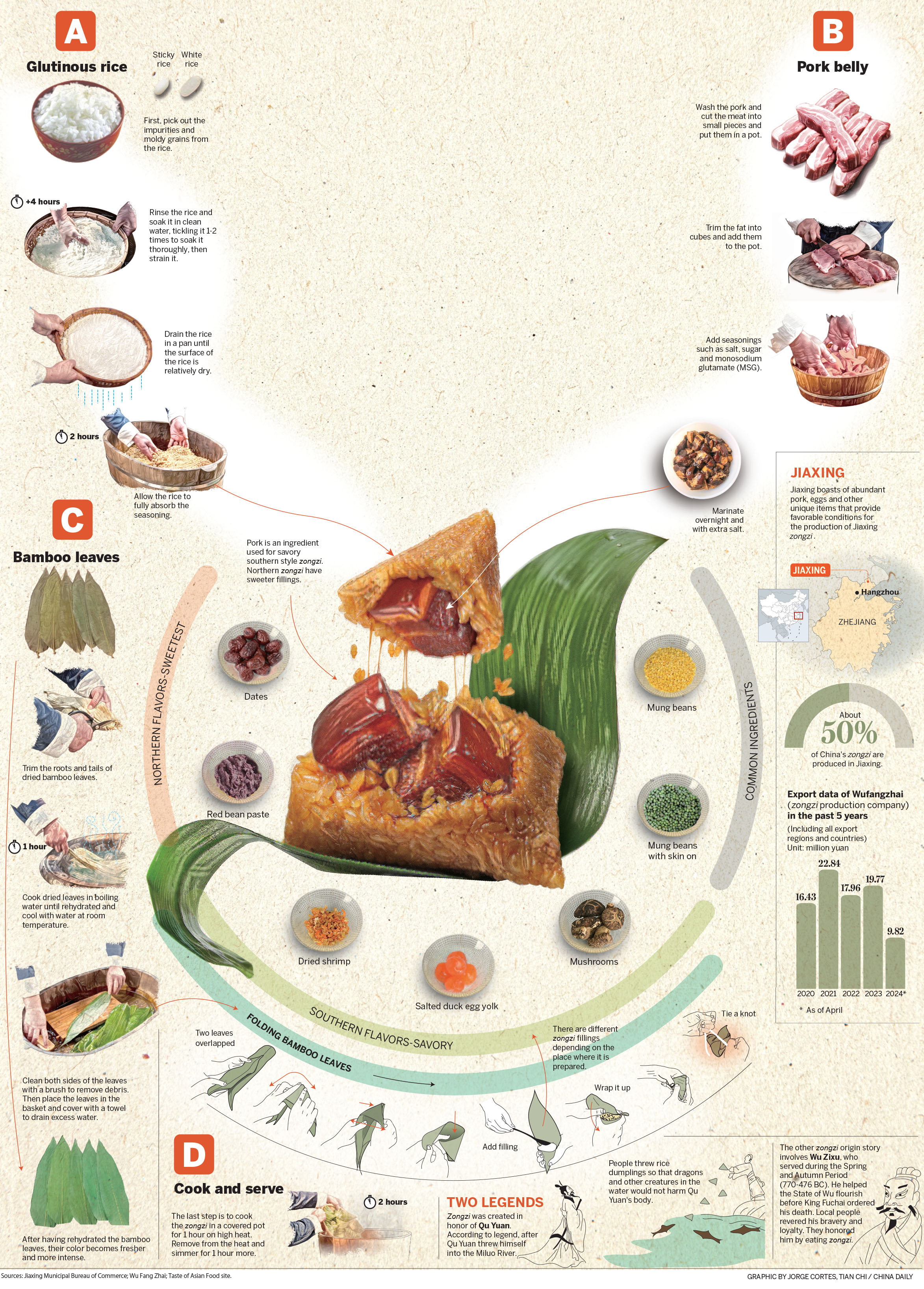From patriotic poet to delicious dumplings, the appeal of the Dragon Boat Festival endures
Editor's Note: Using a blend of words and visuals, this series explores unique communities and reveals the heart of China through food, architecture, craftsmanship, landscapes and traditions.
The Dragon Boat Festival, also known as the Duanwu Festival, is a significant traditional Chinese celebration that falls on the fifth day of the fifth lunar month. It is also the first Chinese festival to be included in the UNESCO world intangible cultural heritage list. One of the festival's enduring customs is eating zongzi — sweet or savory stuffed rice dumplings wrapped in plant leaves.
China's zongzi culture has a very long and time-honored history, and stories that have been told about it for thousands of years are known to every household.
READ MORE: China's paddlers splash out into cultural waters
During the Warring States Period (475-221 BC), a patriotic poet from the State of Chu named Qu Yuan threw himself into a river after the state was conquered. The people of Chu were deeply saddened, and they went to the river to mourn him. In order to protect his body from being eaten by fish and shrimp, people threw rice dumplings into the river every year on the anniversary of his death. The dumplings became known as zongzi.
In Jiangsu and Zhejiang provinces, there is another belief that people eat zongzi and watch dragon races to honor legendary military general Wu Zixu. Wu served during the Spring and Autumn Period (770-476 BC), and he helped the State of Wu flourish before King Fuchai ordered his death. Local people revered his bravery and loyalty, and he has been honored in later generations.

The ingredients used to make zongzi vary from region to region, so there are many differences in shape and taste.
Most are made with plain white glutinous rice. The northern varieties are usually sweet, with ingredients such as sugar, red bean paste and jujubes. On the other hand, southern zongzi are more savory — especially those from Jiaxing in Zhejiang.
Jiaxing zongzi are a renowned specialty in China's Jiangnan (south of the lower reaches of the Yangtze River) and have a rich history. The city, historically known as the "granary of the nation", has been a significant rice-growing area in Chinese history. The area's abundant agricultural products have contributed to the development of various flavors of its zongzi.
ALSO READ: Touring the Silk Road: French tourists fell in love with China
Jiaxing's savory zongzi are filled with soy sauce, pork, water chestnuts and salted duck egg yolk. The combination of high-quality ingredients and traditional cooking methods results in a delectable treat that is enjoyed by people of all ages.
Loved by locals and tourists alike, Jiaxing zongzi have become a symbol of the area's culinary excellence and are often referred to as the "Eastern fast food" due to their portability. According to local market authorities, the production output of the city's zongzi industry amounted to 5 billion yuan ($690.13 million) last year, making up about 50 percent of all zongzi produced in China.
During the Dragon Boat Festival, zongzi is not only enjoyed for its culinary appeal but also cherished for its cultural significance. Families and friends gather to make and share the delicious treat, strengthening bonds and fostering a sense of community.
Eating zongzi during the festival is believed to bring good luck and ward off evil spirits, making it an essential part of the celebrations.


